In order to improve the Provincial Competitiveness Index (PCI), the Department of Planning and Investment and related departments and agencies have recently studied solutions to improve the market entry index, especially reviewing and shortening the processing time for conditional business licensing procedures, creating conditions for businesses to quickly complete procedures and start operations. Besides the achievements, some shortcomings and obstacles related to conditional business licensing procedures in some sectors still exist, causing difficulties for both enforcement agencies and businesses.

Mr. Tran Xuan Tung's Tung Luat boat repair facility in Vinh Giang commune, Vinh Linh district, has ceased operations due to the lack of a certificate confirming that the facility meets the requirements for building and modifying fishing vessels. - Photo: TT
Many regulations make things difficult for businesses and production facilities.
Having operated for over 30 years, the Tung Luat boat repair facility in Tung Luat village, Vinh Giang commune, Vinh Linh district, owned by Mr. Tran Xuan Tung, has been forced to cease operations in the last two years due to the lack of a certificate certifying that the facility meets the requirements for building and modifying fishing vessels.
Mr. Tung said: “People in this area mainly use small boats for fishing, so my workshop specializes in minor repairs, handling common problems with boats such as holes in the hull or simple engine failures. Now, if we register to get a certificate of eligibility to build new or modify fishing boats, we lack many conditions, so we can't do it. We're forced to lay off workers, and I myself have to find other jobs to earn income.”
According to Mr. Le Van Ba from Trung An village, Hai Khe commune, Hai Lang district, in coastal areas like his hometown, people mainly use small boats and coracle boats for near-shore fishing. Therefore, requiring repair facilities to meet the conditions for obtaining a certificate of eligibility for building and modifying fishing vessels, such as workshops and a team of skilled technicians, is inappropriate.
In 2023, the Department of Agriculture and Rural Development had 10 out of 12 administrative procedures related to conditional business licensing that generated applications. Specifically, regarding the procedure for issuing and re-issuing certificates for facilities meeting the requirements for building and modifying fishing vessels, only 2 out of 11 facilities in the province have been granted certificates. The remaining 9 facilities have not been granted certificates as required due to not meeting the conditions for workshop area, facilities, equipment, quality control and management personnel, and technical workers.
According to Decree No. 26, the minimum land area for a type 3 shipbuilding facility (wooden hulls and new material hulls) must be 1,000 m² or more, which is too high and makes it difficult for businesses to rent or purchase land. The requirement for a supervisory and technical staff, with a minimum of 6 people holding a college degree or higher, is also a requirement. The requirement for a skilled workforce, specifically for type 1 and type 2 facilities, stipulates 2-3 painters with at least a secondary education level, which is difficult to implement.
According to Deputy Director of the Department of Agriculture and Rural Development Nguyen Hong Phuong, regarding administrative procedures for granting and re-granting fishing licenses, there are currently 381 fishing vessels in the province with a maximum length of 6 meters or more that have not been inspected, registered, or granted fishing licenses as required. These are mainly small fishing vessels with hulls made of bamboo or plastic (composite), with a maximum length of less than 12 meters and engines ranging from 5.8 kW to 66.2 kW. The aforementioned fishing vessels have not been registered due to a lack of required documents as stipulated in Circular No. 23/2018/TT-BNNPTNT dated November 15, 2018, of the Ministry of Agriculture and Rural Development.
The challenges are not unique to agriculture; the healthcare sector, particularly professions related to food safety, also faces similar difficulties.
Currently, household businesses and production and trading enterprises in the province are mostly small-scale, with the majority engaged in manual production. The owners are unskilled laborers who lack professional training in food safety, thus facing many difficulties in implementing food safety procedures (procedures requiring specialized knowledge such as product quality standards, toxic substances, and pathogenic microorganisms...).
The required documents are based on Government Decree No. 155/2018/ND-CP dated November 12, 2018; however, there are no forms and no instructions on how to create them, leading to difficulties for administrative procedure processing units in guiding individuals and organizations to complete the process.
Furthermore, some regulations regarding the required documents for medical examination and treatment license applications are still general and unclear, such as documents proving that the medical facility meets the conditions regarding infrastructure, medical equipment, and personnel organization suitable for the scope of professional activities of one of the prescribed organizational forms. These aspects lack specific regulations and therefore depend on the analysis and evaluation of the appraisal council.
Develop sample profiles to support businesses.
According to reports from departments and agencies, the total number of conditional business licensing procedures in the province is currently 371. In 2023, the total number of applications received and processed for conditional business licensing procedures was 1,612, of which 8 applications were overdue.
Overall, 11 out of 13 departments and agencies processed applications on time as stipulated by law after receiving complete and valid documents in accordance with regulations.
However, upon review, out of a total of 1,109 files, nearly 137 files required further supplementary processing for the first time, accounting for 12% of the total number of files processed.
Businesses still face difficulties in carrying out administrative procedures, such as: unclear and incomplete procedural guidelines, relatively long processing times for some applications, and applications in some areas requiring multiple revisions and additions...
According to Deputy Director of the Department of Planning and Investment Le Thi Thuong, based on the issued set of administrative procedures, departments and agencies (with administrative procedures) need to research and develop sample documents so that businesses can copy and fill in the required information and publicly display them at the province's one-stop service center and on the websites of the departments and agencies.
For staff at the one-stop service center (receiving and returning results), it is necessary to provide clear and complete guidance on filling out application forms, paying particular attention to supplementary applications. They should monitor the time frame to notify citizens and businesses to resubmit their applications.
For officials handling applications, especially those involving amendments or supplements, it is necessary to provide detailed guidance to citizens and businesses to ensure that applications comply with legal regulations and to minimize the need for additional document requests.
Regarding the procedures for issuing certificates of eligibility for the construction and renovation of fishing vessels, the Department of Planning and Investment has proposed that the Provincial People's Committee request the Ministry of Agriculture and Rural Development to advise the Government to amend Government Decree No. 26 to remove difficulties and obstacles, creating conditions for fishing vessel construction and renovation facilities to continue operating.
To facilitate production facilities and businesses, in the coming period, it is necessary to further shorten the processing time for conditional business licensing procedures, creating conditions for businesses to quickly complete procedures and start operations.
Implementing administrative procedure reforms aims to ensure legality, efficiency, transparency, and fairness in handling matters, while simultaneously identifying and eliminating cumbersome and overlapping procedures. Developing and amending administrative procedures to be simpler and more convenient for individuals, organizations, and businesses.
Standardize and promptly publicize information on the websites of departments and agencies, and continue to simplify and minimize the time required to complete administrative procedures. Strengthen communication, guidance, and encouragement for businesses to carry out business registration procedures online and maintain the provision of comprehensive public services for all administrative procedures.
Effectively implement the one-stop shop mechanism, integrated one-stop shop, and strongly apply information technology in resolving administrative procedures, providing online public services, and e-government.
Thanh Truc
Source










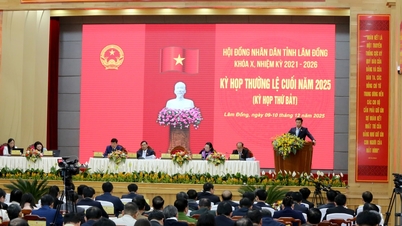











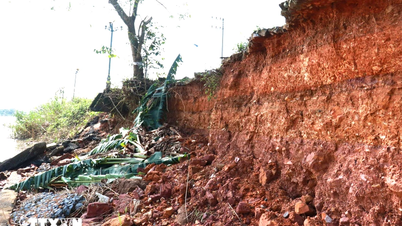
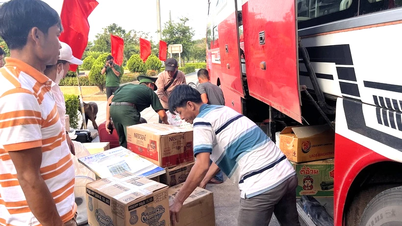

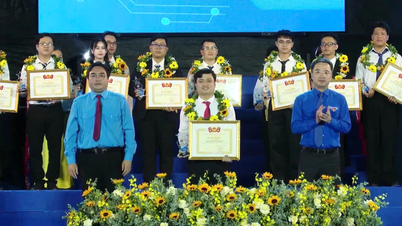




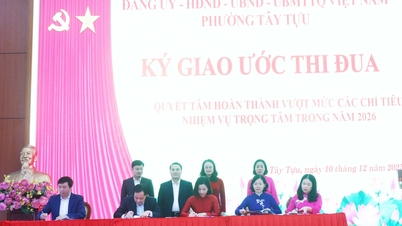
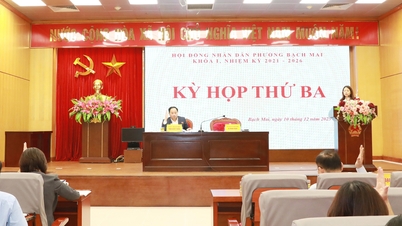
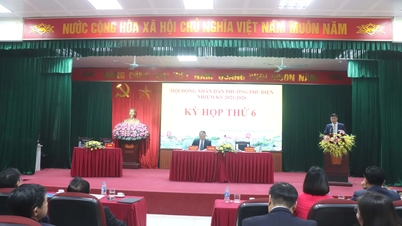
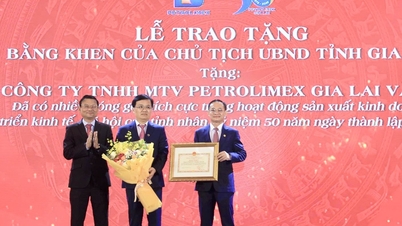
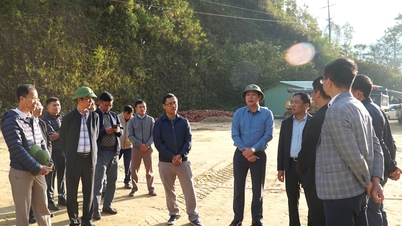
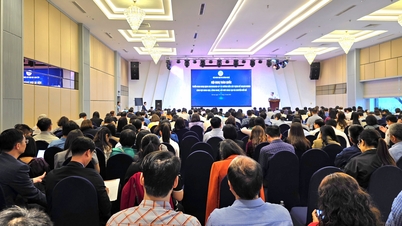





![[Video] The craft of making Dong Ho folk paintings has been inscribed by UNESCO on the List of Crafts in Need of Urgent Safeguarding.](https://vphoto.vietnam.vn/thumb/402x226/vietnam/resource/IMAGE/2025/12/10/1765350246533_tranh-dong-ho-734-jpg.webp)


































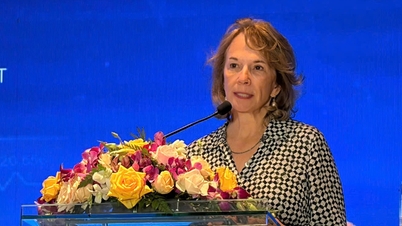


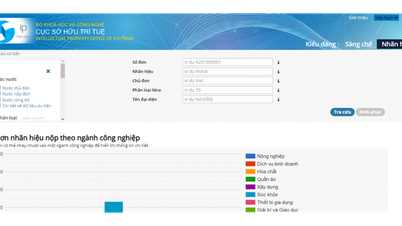
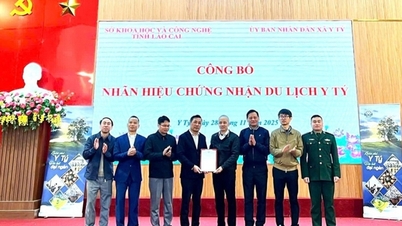
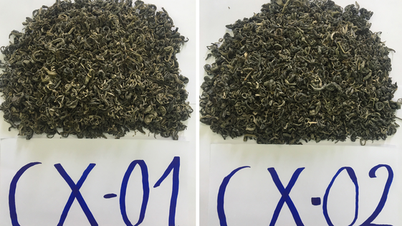

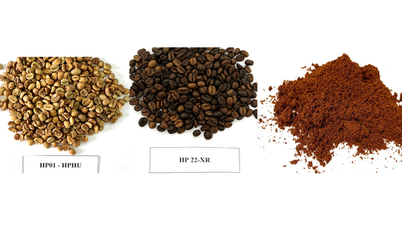
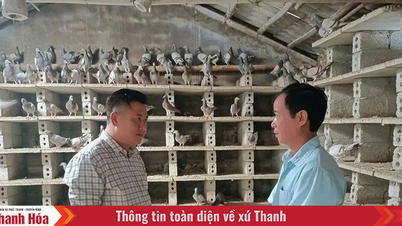

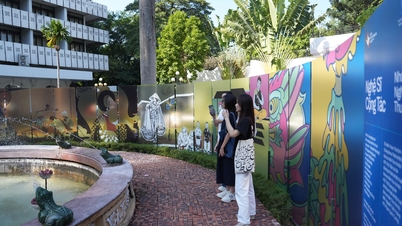





















Comment (0)